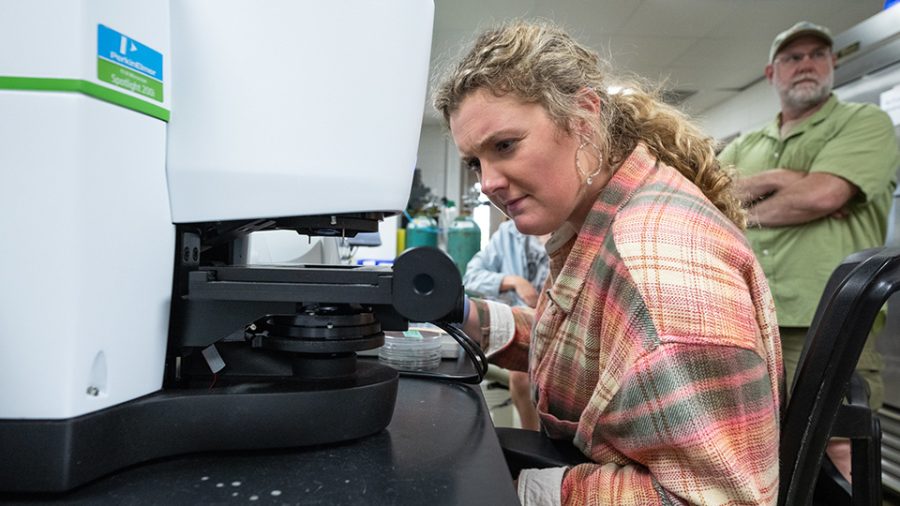UWO biology students use new spectrometer to study microplastics
Courtesy of UWO — New technology at a UWO lab is allowing students to study microplastics in fish and mussels, giving insight as to what impact the materials might have on the environment and ecosystem.
June 29, 2023
New technology at a UW Oshkosh lab is allowing students to study microplastics in fish and mussels, giving insight as to what impact the materials might have on the environment and ecosystem.
Students are using a new Fourier Transformed Infrared (FTIR) spectrometer to detect and identify microplastic particles in Wisconsin lakes and rivers as part of a collaboration between UWO and UW-La Crosse. Housed at UW Oshkosh’s Environmental Research and Innovation Center (ERIC) lab, the FTIR technology was purchased by the Freshwater Collaborative of Wisconsin.

Biology majors from both UWO and UW-La Crosse are conducting the research and the project is led by Bob Stelzer, biology professor at UWO; Greg Kleinheinz, engineering and engineering technology department chair at UWO; and Eric Strauss, biology professor at UW-La Crosse.
Some students are looking at the presence of microplastics in fish, which may have adverse health effects and impact reproduction and growth. Others are looking at microplastics in mussels, which may disrupt food webs and influence the health of the environment. Kleinheinz said the hope is to determine the source of the microplastics and macro plastic debris to help determine their source—which will help inform future outreach, mitigation and education activities.
Stelzer said the students taking part in the project are getting invaluable experience that will further their development as scientists and student researchers. Their experience, he said, also will bolster their prospects for getting hired in their fields of study.
The Freshwater Collaborative of Wisconsin is a statewide initiative that applies the power of the 13 UW System institutions and the Wisconsin Idea to lead the global community in addressing freshwater challenges.
Its goals include tackling 10 grand water challenges and support curriculum development, undergraduate research opportunities, career development and field training experiences for students interested in studying water-related fields at UW System schools.














